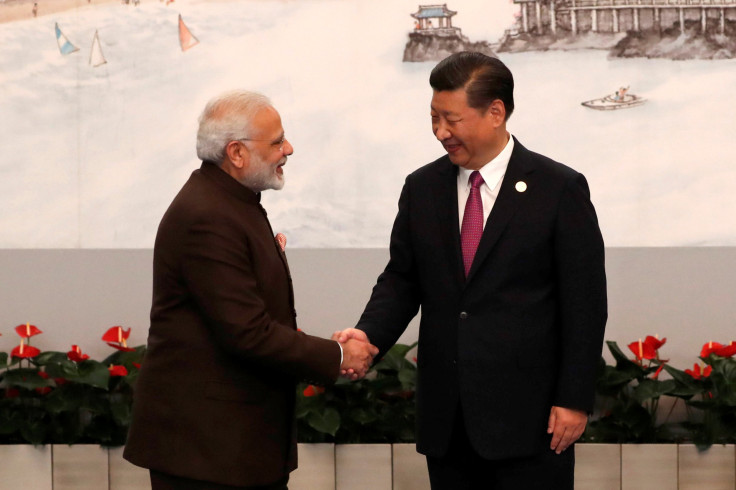Possible Modi-Xi Meet On BRICS Summit Sidelines Would Only Be A Start To Resolving India-China Rivalry, Experts Say

As leaders from across the globe arrive in South Africa for the BRICS summit, speculations continue over a possible bilateral meeting between Indian Prime Minister Narendra Modi and Chinese President Xi Jinping.
Such a meeting would only provide a start to the two nations possibly thawing the frosty India-China relations due to the border standoff that began in 2020, experts have said.
"There is a possibility of a meet between the two leaders of India and China. That could be a good start. However, expecting that relations will return to pre-April 2020 will be jumping the gun," Vivek Mishra, a fellow with Observer Research Foundation's Strategic Studies Program, told International Business Times.
The 15th BRICS summit, which will be held in Johannesburg from Tuesday to Thursday, will be the first in-person BRICS summit since 2019 due to the COVID-19 pandemic.
Modi is expected to be part of bilateral meetings on the sidelines of the BRICS summit, India's Foreign Secretary Vinay Kwatra said Monday. However, Kwatra did not confirm whether the agenda would include a meeting between Modi and Xi.
If such an encounter takes place, it would be the first in-person bilateral meeting between the two leaders since the India-China border standoff began in 2020. Xi and Modi had a brief encounter in November last year when Indonesian President Joko Widodo hosted them in Bali for a G20 dinner.
It is unlikely that a meeting on the sidelines of the BRICS summit would dissipate tensions especially because the two neighboring countries are taking different approaches to the issue. China is willing to allow the border dispute to take a backseat while India has made it clear that its relations with Beijing would only be normalized when the border issue is fixed.
"China wants to move ahead in the relationship while keeping the border issue on the side burner. India in contrast has put the issue front and center as it should be, and the normalization of the relationship has to begin from steps initiated by China, not India," Mishra said. "The bilateral relationship, if it takes place, can provide a window."
Since the border rivalry saw a flashpoint in 2020 with the killing of about 20 soldiers in the Galwan Valley, India has strengthened its defense presence and deployed more troops in the region. India-China ties have also seen adjustments in other areas due to the border tensions.
"The border standoff has negatively impacted India-China relations, especially post-Galwan clashes in 2020. The biggest casualty is the 'trust' factor in the bilateral relationship," Niranjan Oak, a research analyst at Manohar Parrikar Institute for Defense Studies and Analyses in New Delhi, told IBT.
"It would be wrong to think that frosty ties will thaw after the in-person meeting between the two leaders," Oak added. "The relations will thaw only after the issues are resolved in the Himalayas. India has clarified that relations won't be normalized unless the border situation is resolved. However, the Modi-Xi meeting can help resolve the vexed issue. The guidance from the top leadership can help the respective militaries to achieve positive outcomes in the next round of India-China Corps Commander Level Meeting."
© Copyright IBTimes 2024. All rights reserved.






















